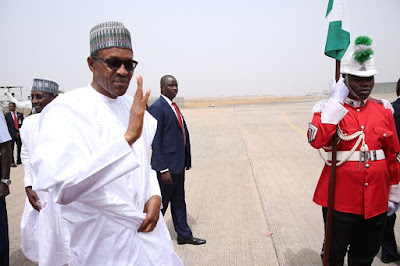By Rotimi Fasan
It’s
indeed a pertinent thing to ask when a leader should respond to a crisis
situation. Perhaps, a more pertinent question is why a leader should respond at
all. The simple answer is that by responding a leader shows he/she care for and
understands his/her duty by their people.
Questions
of this nature are especially relevant at a time Nigerians continue to debate
the failure of President Muhammadu Buhari to make his views known on the
ongoing spate of killings across the country being perpetrated by so-called
herdsmen. These marauding groups have apparently found better rewards in
violent employment than in herding cattle. Yet, our leaders don’t have an
answer to the question posed by the violence or occurrences that lead to loss
of live. I shall return to this shortly, but first to the basis of what appears
now to be a collective career in terrorism.
The
cause of trouble, as always, is over land ownership and the right (or lack
thereof) of these herdsmen to graze their cattle in other peoples’ farmland.
Even when it’s generally admitted or presumed that the roots of these violent
eruptions reside in ancestral claims and counter claims of land ownership and
the rights that come with this, ongoing killings by supposed herdsmen do not
appear to have any connections to land issues. They are cases that border on
pure criminality by blood thirsty hounds who wipe off whole villages or
clusters of villages, killing the men, raping the women and destroying
farmlands and animals.
The
once innocuous image of cattle herders who went on long treks grazing their
cattle has been replaced with that of gun-totting brigands some people now tell
us are in fact aliens from foreign countries. But whether indigenes, aliens or
marauding bands, the question is what is government, particularly our leaders,
doing to address these growing cases of criminal impunity? In the many cases
that were reported all through last year, not once did the country’s leaders
demonstrate any sense of a coordinated response to the issue. What rings so
loud is the dead silence that emanates from the corridors of power. The Buhari
government seems to be very adept at this- playing dumb at a moment that
demands eloquence, except when the president is abroad and is obliged to
address foreign press corps.
At
other instances, you hear some state official, usually a spokesperson, taking
on roles one would naturally expect belong to the president, governor or any
other person the matter concerns. Such responses are most times fire fighting
measures meant to mitigate the aggravation and outcry that are the responses to
the silence of our leaders in the face of terror that gestures at the failure
of leadership. It’s a terrible reminder of such failure that since the latest
spate of attacks that have increased since the last quarter of last year,
including the Kafanchan killings which some call ethnic cleansing, not once
have Nigerians heard President Buhari make his position clear on the matter.

















